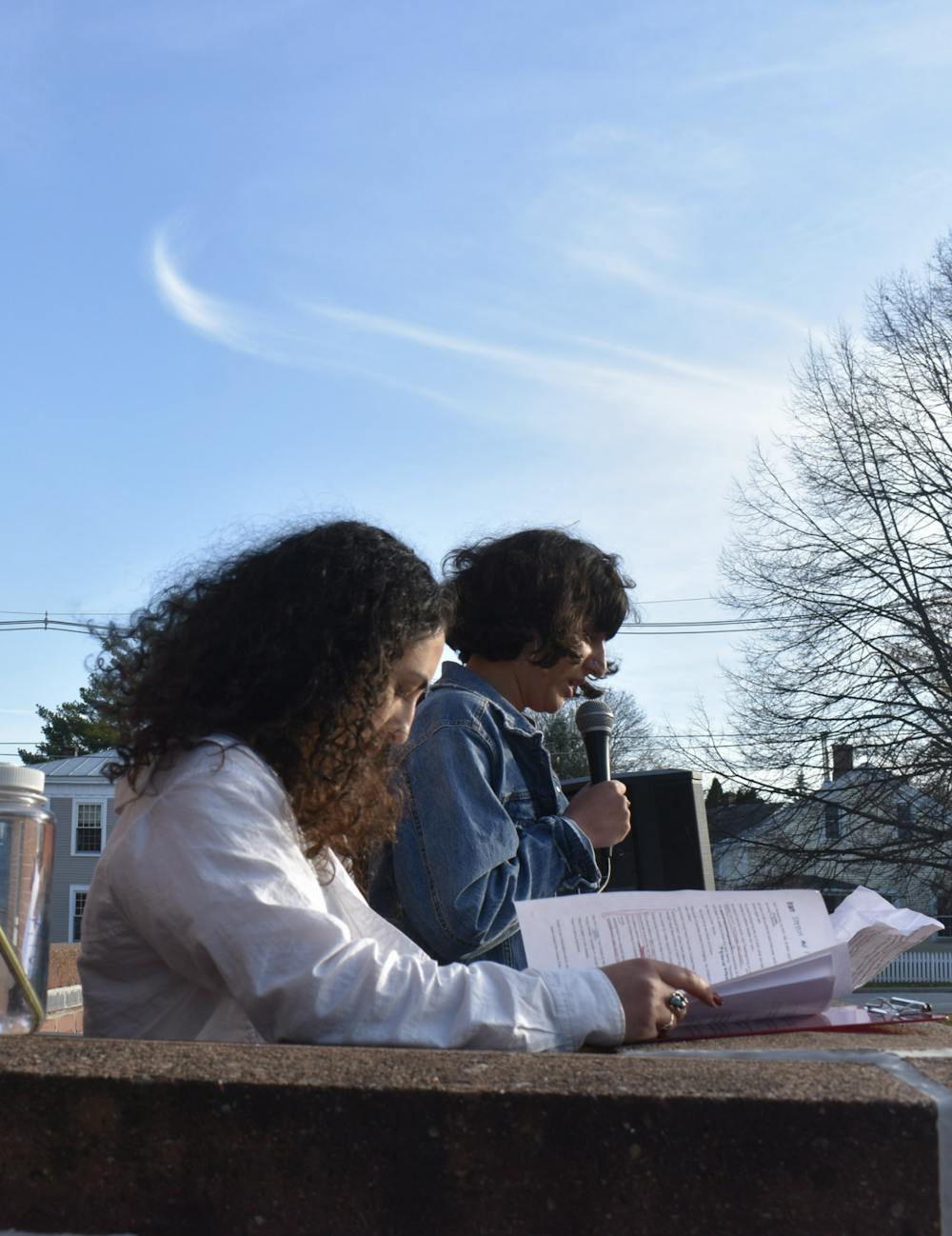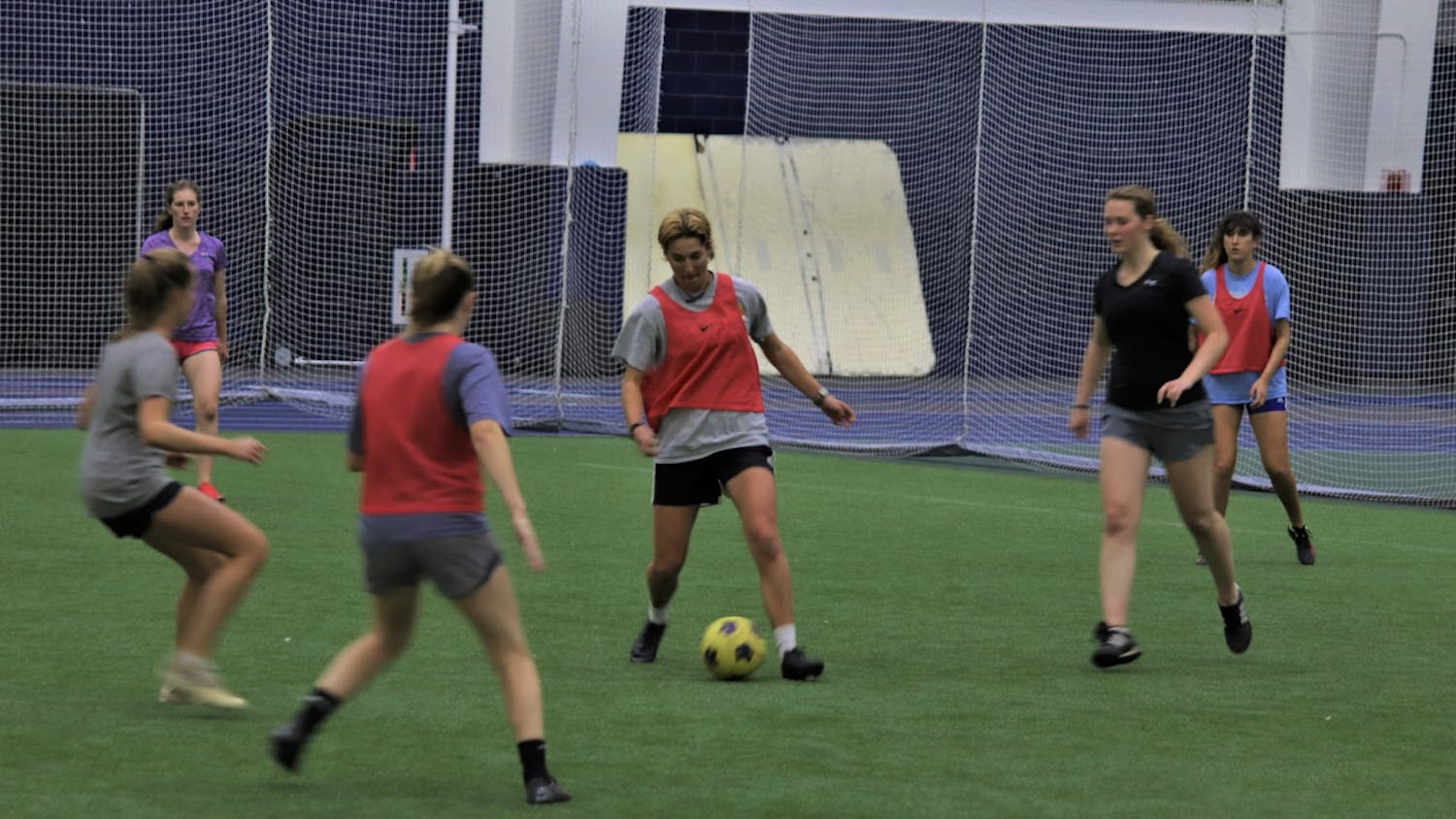On Friday, Nov. 4, a group of Middlebury students gathered to march in solidarity with the Iranian and Kurdish women protesting for their basic human rights in Iran, and mourning the death of Mahsa Jina Amini. After allegedly being killed by the morality police for not properly adhering to the sexist and oppressive mandatory hijab laws of the Iranian government, Iranian and Kurdish women and girls turned their freedom dream, to have basic human rights, into a freedom fight.
They are protesting in their streets and burning the mandatory hijab, more desperate for freedom than afraid of the violence of the morality police or the possibility of arrest and sexual assault in what the Iranian government is calling “re-education” centers. Two more young lives were unnecessarily taken by the brutal morality police; 16-year-olds Nika Shakarami and Sarena Esmailzadeh died fighting for their sisters and themselves. They are not the only girls who have lost their lives in the battle to end gendered violence and oppression in Iran. On Friday, we gathered to stand in solidarity with these brave women. We gathered to honor their lives. And we gathered to amplify their voices.
This march wouldn’t have been possible without the strong network of feminist activists at Middlebury.
When I began to think about organizing the march, the first person I approached was my dear friend Mei. I didn’t know how to start the process, but I knew it was something I wanted to do, so I turned to her. My confidant, personal cheerleader and a student worker of the Feminist Resource Center, I knew she’d be able to help. I asked Mei if the Feminist Resource Center at Chellis House might be able to support this sort of event. Then, I found my first link to the strong feminist network at Midd.
I hadn’t committed myself to organizing the march at that point, I was merely exploring the possibilities. I didn’t know if I was the right person for this task; I had never organized anything like this before, and I was afraid I wasn’t close enough to the situation to organize a thoughtful event that was conscious of all the deeply rooted intricacies of the problems facing Iranian and Kurdish women in Iran right now.
Mei committed herself to helping me start this initiative. The very next day she came to me and said that the center would definitely be able to support the march. Karin Hanta, the director of the Feminist Resource Center, suggested that I come to their next meeting for further discussion. And so, the initiative was born. I am so grateful for Mei’s help with setting up this connection. She is the best co-organizer in the world and this wouldn’t have been possible without her.
The Feminist Resource Center immediately welcomed me into their circle. My feminist network grew by one more link. Director Hanta gave me and Mei direction on logistics. She suggested we reach out to the Dean of Student Affairs and get the event registered on Presence. She also frequently forwarded us resources regarding protests in Iran and solidarity movements in the United States.
She sent an article from The Harvard Crimson that was particularly informative. The article was written by a Muslim student who actively chooses to wear the hijab. She was extremely bothered that some U.S. protests were using language that implied that there is something wrong with the hijab, when in fact the problem is the dictator’s using it as a means of oppression. This informed a lot of the language we used and led to us getting in touch with the Muslim Students Association (MSA). We had a meeting with them and made sure that all of the language we were using was respectful to women that actively choose to wear the hijab. We collaborated with them on our poster and put large emphasis on the fact that we are advocating for women to be able to choose what they wear, not to promote a particular choice.
Mei and I were also able to connect with strong feminist voices at Middlebury Union High School. Narges Anzali spread the word about the event in the high school. She also read a beautiful poem at the event.
A friend connected us with Iman Behbehani, who led the chant “Women, Life, Freedom,” and read a touching and powerful speech at the event.
Student-employees of the Feminist Resource Center helped hang up posters and put us in touch with several student groups to organize sign-making. Radical Asians (RAISINS) and Feminist Action at Middlebuy (FAM) both came together to make signs for the march. The event was a promising example of multiple student organizations pooling resources and joining in a shared passion for feminism. RAISINS does not necessarily present as a feminist organization, but was one of the groups that volunteered their time to make the event happen.
This effort was a collaboration amongst many affinity groups and showed that the feminist network at Middlebury transcends the focus of various student groups. By organizing this march, we revealed feminism as a shared passion at the root of various cultural and political organizations. It seemed that intersectionality allowed for various groups to come together based on the topic of women’s rights. We found a significant overlap in the feminist beliefs amongst MSA, RAISINS, FAM and Chellis House, and we are hopeful that commonality can be at the forefront of future, bigger activist movements.
We believe this level of collaboration will bring existing organizing efforts to a new level. The Nov. 4 march showed us that there is so much to be gained by reaching out for more perspectives and support.
Editor’s Note: Sophia Afsar-Keshmiri ’24 is an Opinions Editor for The Campus.




